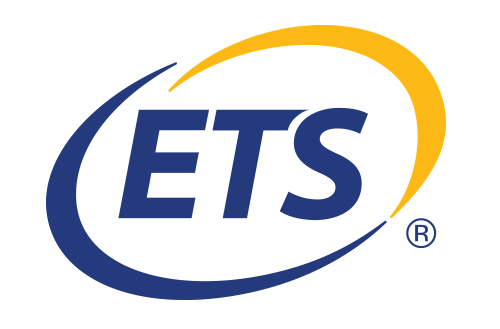- Home
- About
- Conferences
- 2027
- 2026
- 2025
- 2024
- 2023
- 2022
- Conference Information
- 2022 Call for Proposals
- 2022 Conference
- 2022 Sponsorship Opportunities
- 2022 Conference Registration
- 2022 Conference At a Glance
- 2022 Conference Portal
- 2022 Conference Events
- 2022 Pre-conference Institute
- 2022 Conference Keynote Lectures
- 2022 Featured Sponsors and Partners
- 2022 Virtual Exhibits
- Covid-19 Protocols
- 2022 Conference Photos and Recordings
- 2022 Conference Program
- 2021
- Previous Conference Themes
- Programs
- Professional Development Programs
- Institutes
- Fellowship Programs
- New Leadership Academy
- AAHHE Awards
- Books of the Year Awards
- Outstanding Dissertation Awards
- Publications
- Voices
- Members
- Job Board
- Join Now
2022 AAHHE National Conference
Cultivating Justicia con Amor y Querencia: Embracing Healing through Policies and Practices that Transform Institutions for Latinx/a/o CommunitiesCultivando Justicia con Amor y Querencia: Sanando las Comunidades Latinx con Políticas y Prácticas que Transforman las Instituciones
March 10 - 11, 2022
The 2022 AAHHE National Conference theme 'Cultivating Justicia con Amor y Querencia: Embracing Healing through Policies and Practices that Transform Institutions for Latinx/a/o Communities' aims to showcase the transformative work happening within the Latinx community. The current precarious times lead us to foster higher education environments that center amor (love) and querencia (intentional care) in the pursuit of justicia (justice); querencia is the care received within a space that is safe, affirming, empowering and feels like home through the unwaivering amor from those within such a space. AAHHE hopes that by striving for justice through amor and querencia, higher education leaders will enact policies and practices that move beyond coping with injustices and instead offer healing moments for Latinx/a/o communities. For additional information on the conference theme, please click here. The 2022 AAHHE National Conference is showcasing the following five conference strands: Fostering Querencia by Centering Intersectional Identities and Experiences of Latinx/o/a Students This strand a) aims to interrogate the ways in which researchers, practitioners, and policymakers center Latinx/a/o college student identity development and experiences; b) prioritizes sessions that engage with asset-based perspectives to recognize the intersectional identities and experiences of students from Latinx/a/o communities that have historically been placed on the margins; and c) seeks to acknowledge the ways in which Latinx/a/o students are differentially situated in higher education and in society based on their intersecting identities and overlapping systems of power. Proposals that attend to the following identities and experiences are welcomed:
Building Coalitions through Latinx/a/o Intersectional Activism This strand a) encourages the act of reimagining advocacy and activism in higher education at both individual and systemic levels; b) seeks to underscore and highlight the various ways Latinx/a/o communities resist systems of oppression through activism, social movements, grassroots organizing, and other forms of challenging the status quo; and c) addresses long-standing educational inequities and to forge a more inclusive and just path forward. Proposals that disrupt oppressive systems in the following areas are welcomed:
Transforming Policy, Leadership, and Institutions through Querencia and Justicia Querencia (Intentional Care) and Justicia (Justice) is critical for transforming policies, leadership and institutions to better serve Latinx/a/o communities within higher education. This strand seeks proposals that a) prioritize practices of intentional care, examine new ways of creating policies and practices that center social justice; and b) focus on the active engagement and utilization of perspectives that aim and are successful in disrupting and dismantling hegemonic power structures and systemic obstacles that exist within higher education. Proposals that attend to the following issues are welcomed:
Forging Community Partnerships con Cariño for Equity in PreK-16 institutions Through cariño, asset-based partnerships often serve as vehicles for student success, both inside and outside the classroom. This strand seeks proposals that: a) challenge the systems that have disadvantaged and marginalized Latinx/a/o students and their families throughout the educational pathway from PreK-16 and beyond; b) highlight intentionally student-focused and co-curated approaches that center access, equity, and inclusion for Latinx/a/o communities; and c) discuss how partnerships have led to increased student agency as well as educational, social, and economic mobility of the Latinx community. Proposals that center on the the following topics are welcomed:
Prioritizing Healing through Latinx/o/a Communal, Radical, & Self Care Healing and wellness in Latinx/o/a communities are critical for moving forward in higher education places and spaces. This requires scholars and practitioners to examine the emotional, physical, spiritual, social, and psychological factors that support the healing of the Latinx/o/a community in higher education, while seeking to identify and promote the ways that the Latinx/o/a community enacts productive coping and healing strategies. This strand seeks proposals that offer new ways of approaching radical healing as a framework with its components grounded in anchors such as collectivism, critical consciousness, radical hope, strength and resistance, and cultural authenticity and self-knowledge. Proposals that include the following issues are welcomed:
|

